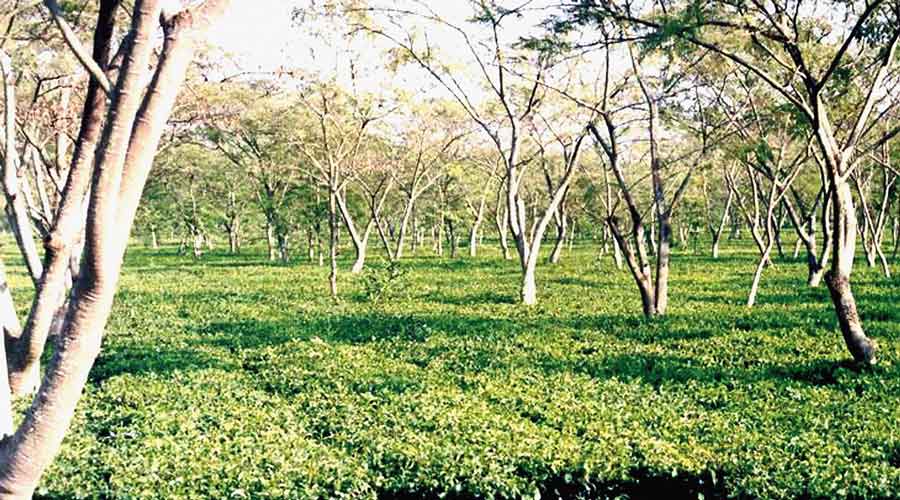Small tea growers in north Bengal have approached the Mamata Banerjee government seeking formulation of a land policy that can help in regularising their plantations.
Bengal has witnessed a surge in the small tea sector — which contributes to around 58 per cent of the total tea production of the state now — over the past two decades. However, almost 90 per cent of these plantations — which are spread over 42,000 hectares — have not yet been regularised.
“Thousands of tea plantations have come up in the past 20 years but the land records of these plantations have not been updated till now. In other words, the land records still bear the old status of the land, which have changed into tea plantations. As a result, the majority of the growers do not have any proper document of their land to validate their plantations. That is why we want the state government to come up with a land policy so that these plantations can be regularised,” said Bijoygopal Chakraborty, president, Confederation of Indian Small Tea Growers’ Associations.
In the late nineties, as small tea plantations started mushrooming in the districts of Jalpaiguri, North Dinajpur and Alipurduar and in Siliguri sub-division of Darjeeling district, the Left Front government took up the task to restrict the growth of these plantations.
“This is because the crop pattern had started changing in these districts and there was no updated record of the new plantations,” said a senior tea grower.
In 2001, the Left Front government had issued a notification mentioning that only those plantations which have come up till June 30, 2001, will be considered legal and records of only those plots will be updated. “Also, drives were conducted by the land and land reforms department to uproot tea bushes from plantations that had come up after the stipulated date,” the grower added.
However, as years passed, the rise in demand for tea leaves led to a steady growth in the sector. While there were around 5,000 growers in 2001 — the ones who could get their plantations regularised at that time — the number of growers has reached 50,000 now.
“Out of them, 45,000 growers are yet to have their land regularised and till date, they do not get the benefits and assistance provided by the state and central governments. They cannot even approach a bank or similar financial institution for a loan. That is why we have raised the demand,” said Chakraborty.
The benefits include crop insurance and the annual assistance provided to farmers, help for micro-irrigation and some other subsidies.
A couple of days back, the growers met Smaraki Mahapatra, principal secretary in the land and land reforms department, and requested her to take necessary steps for
the formulation of the land policy.
The Cista president pointed out that in five districts of north Bengal, the small tea sector provides employment to a considerable section of the rural population.
“The state government is well aware of the emergence of the sector that has also created employment opportunities, especially in the villages. We hope it will act on the issue and help the growers to get their land regularised,” he said.











